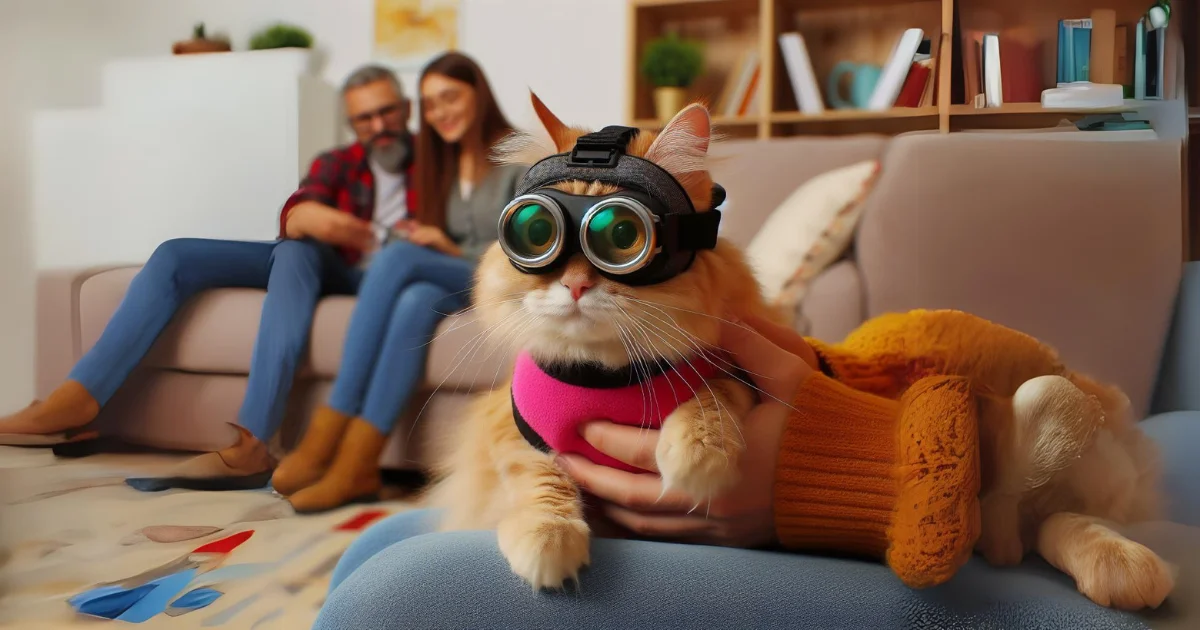Introduction
For many, pets are far more than just animals – they are beloved family members and sources of comfort, joy, and emotional support. This is especially true of cats, which have a long-standing reputation as therapeutic, stress-relieving companions. However, residents of public housing complexes may wonder if rules allow Emotional Support Cat in Public Housing Apartments and what steps they need to take to qualify.
Read More: 10 Most Beautiful Cats in the World
This comprehensive guide will cover all the key considerations around welcoming an emotional support feline into your subsidized home. Read on for information about laws and regulations, required documentation, proper cat care in small spaces, dealing with allergies, and much more. With a bit of planning and forethought, as well as cooperation from housing authorities, emotional support cats can drastically enhance the quality of life for public housing tenants.
Laws and Regulations Around Emotional Support Cat in Public Housing Apartments

As you begin the process of requesting an emotional support cat.
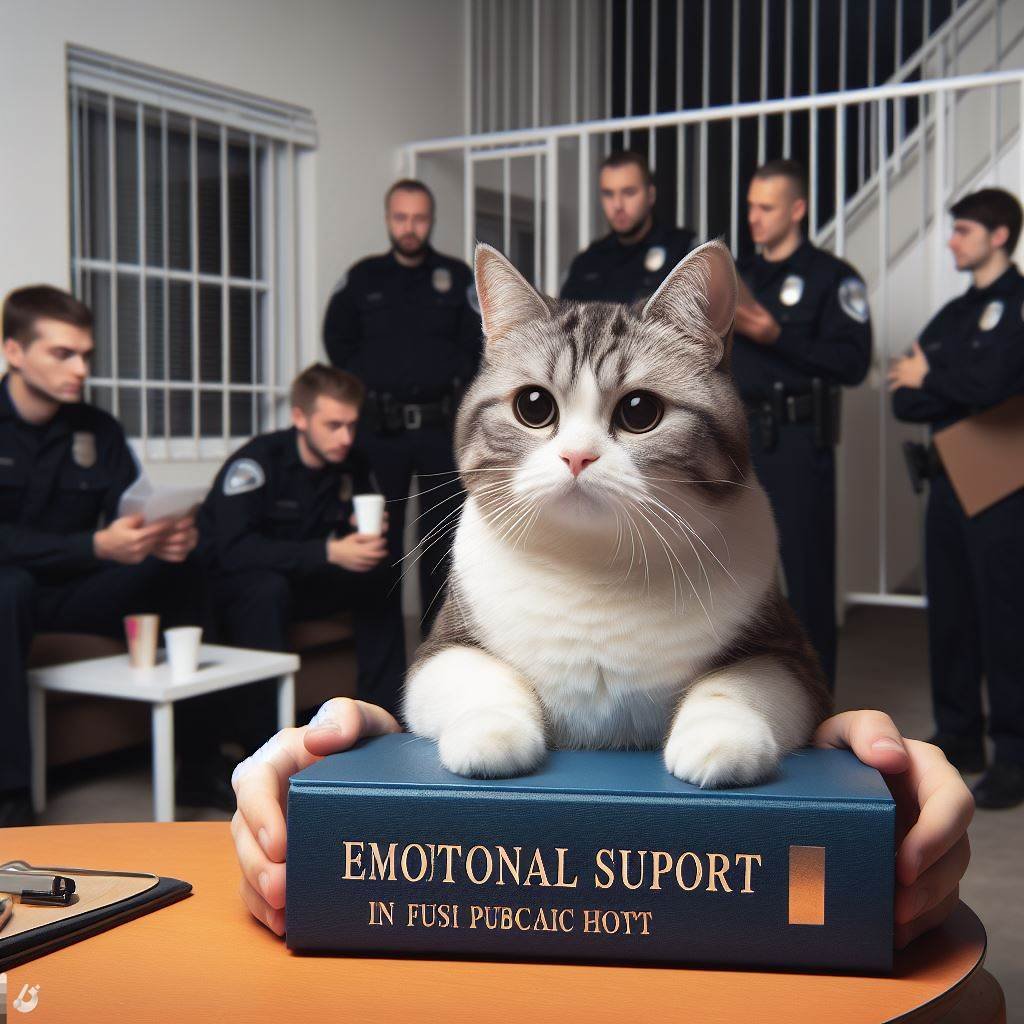

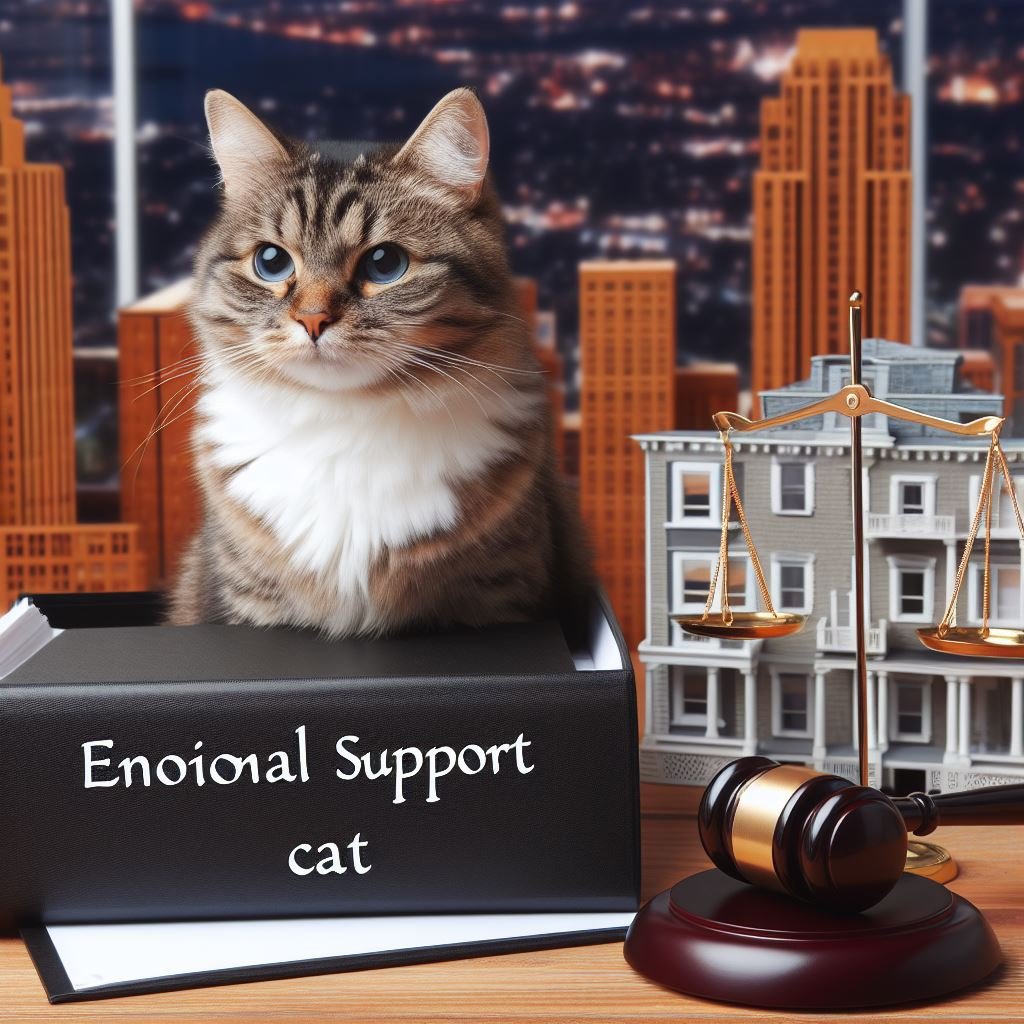
Federal Laws Dictate Basic Rights
The most important law dictating rights around emotional support animals, including cats, is the Federal Fair Housing Act (FHA)…
Many States and Cities Also Provide Protections
In addition to federal law, some states and local jurisdictions have supplemental rules around emotional support animals.
Public Housing Authority Rules Vary
While laws provide a basic rights framework, individual public housing authorities have significant discretion in setting specific rules around emotional support cats in their properties. Some authorities…
Required Documentation For Emotional Support Cats
Residents must obtain documentation from a licensed mental health professional to legally keep an emotional support cat in no-pets housing. Typically, the required documents are:
Letter from Therapist or Prescribing Doctor
The most essential documentation is an official letter from your therapist, psychologist, psychiatrist, or other qualified mental health professional currently treating you. This letter must…
Other Useful Documents
In addition to a letter from your mental health provider, having other supporting documentation can help streamline the approval process with your housing authority. Helpful documents include:
Caring For Cats in Small Public Housing Spaces
Public housing apartments tend to be relatively small, making cat owners wonder if they can adequately care for a feline companion in limited space. However, there are many tips for optimizing a small dwelling for a happy, healthy, emotional support cat. Useful strategies include:
Litter Box Placement and Maintenance
With less square footage, strategically placing litter boxes is critical. Recommended litter box locations include:
Designating Cat Areas
Though small, public housing apartments can still accommodate designated cat areas. Focus on vertically utilizing space by:
Providing Enrichment
Just because apartments are compact does not mean cats have to lead boring lives! There are many ways to enrich your cat’s environment, even without access to a large house or yard. Excellent enrichment strategies involve:
Dealing with Allergies and Fearful Residents
Housing authorities may cite two common concerns when considering emotional support cat requests: resident allergies and phobias. However, there are constructive ways of addressing these issues that allow the approval of support cats whenever possible. Helpful allergy and fear alleviation tactics include:
Minimizing Dander and Irritants
To minimize sneeze-inducing dander, cat guardians can implement routines like:
Thoughtful Placement
Housing authorities can thoughtfully place residents with cat allergies or phobias away from wings or floors with higher feline populations. Additionally…
Mediation and Compromise
Housing authorities should have mediation policies and procedures in place if conflicts do emerge between residents regarding emotional support cats. Possible compromises include:
Beyond Housing Authority Approval: Preparing for Ideal Cat Care


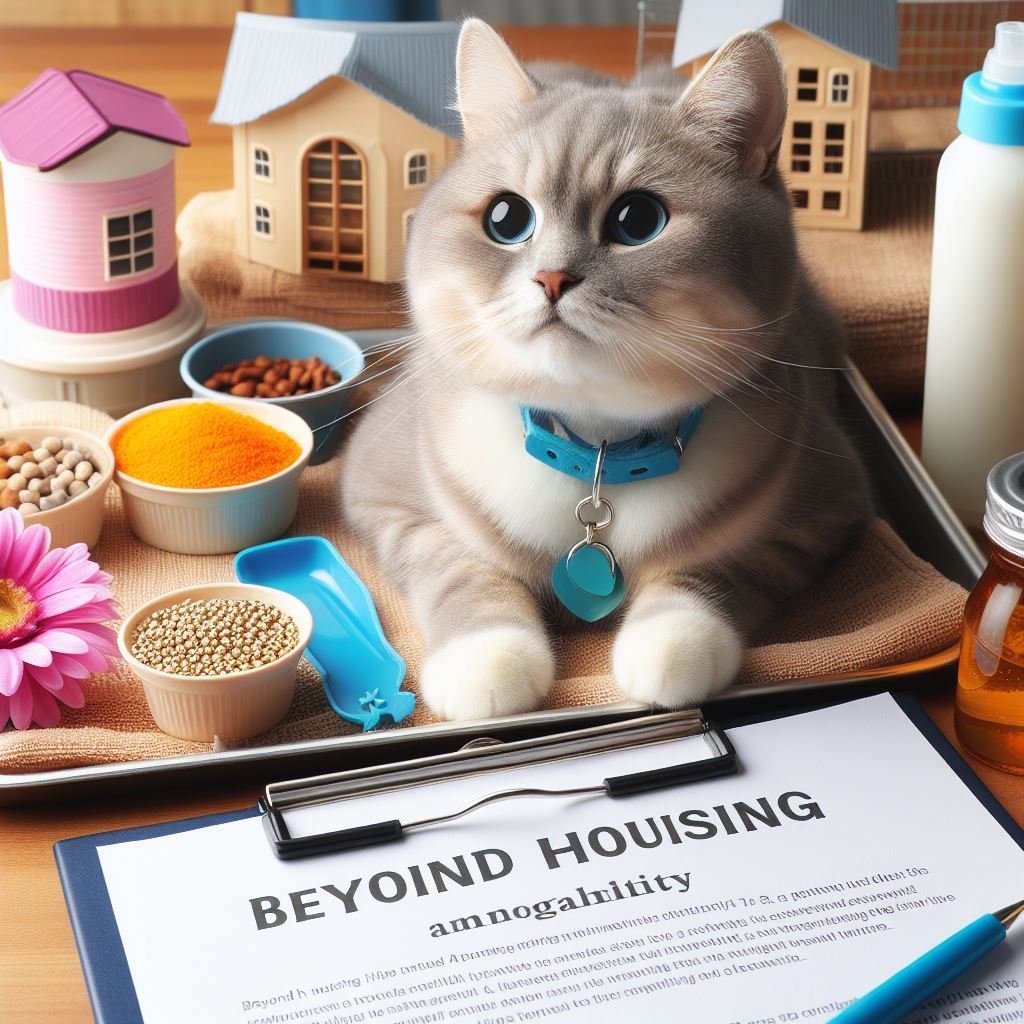
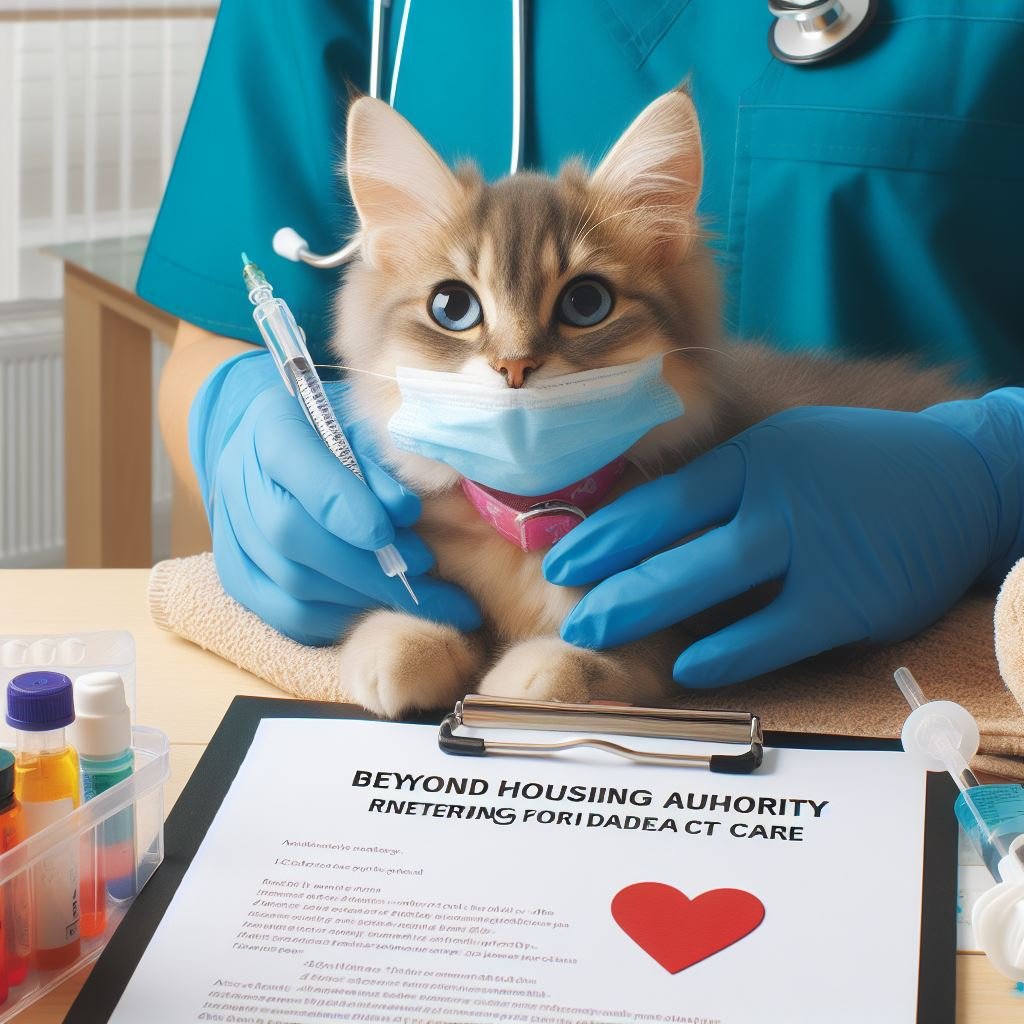
Once you’ve crossed the hurdle of obtaining housing authority approval, the rewarding journey of cat guardianship truly begins! Be sure you fully understand the basics of ideal cat care before adoption.
Supplies and Expenses
Caring for a cat comes with recurring expenses for supplies. Prepare a budget to ensure you can provide for your furry friend.
Vet Care and Emergencies
From routine checkups to unexpected emergencies, access to veterinary care is vital. Research affordable vet clinics in your area and have an emergency plan detailing.
Enrichment and Bonding
In addition to meeting basic needs like food, water, and medical care, focus daily on nurturing your bond and bringing joy to your cat! Engage in activities like.
Bringing More Feline Therapy to Those in Need
Emotional support cats can profoundly impact mental health, provide companionship, and impart a sense of purpose. Public housing residents dealing with issues like anxiety, depression, and loneliness can significantly benefit. With thoughtful policies, housing authorities can enable more therapeutic cat adoption by subsidized tenants. Support cats already positively impact many lives – so ensure this therapy is accessible to all, regardless of income and housing status.
Read More: Emotional Support Cat in Public Housing Apartments
Conclusion
Having an emotional support cat can make all the difference for public housing residents coping with mental health issues. With proper documentation, adherence to housing authority rules, thoughtful pet care practices for small dwellings, and cooperation amongst neighbors, cats can safely and legally comfort many tenants.
Support cats already brighten people’s lives across all socioeconomic backgrounds — public housing residents also deserve access to the therapeutic benefits of feline companionship. The insights in this article can help make emotional support cat adoption more feasible. Ultimately, allowing more furry therapists to lift spirits and lessen struggles aligns with public housing’s mission to uplift communities.
FAQs
What type of litter box is best for a small apartment?
The best litter box options for compact spaces are top-entry, front-entry, or high-walled corner boxes, as these contain mess and odor more effectively while taking up less floor room. Covered boxes also help control tracking litter through tight quarters.
Are emotional support cats allowed in senior public housing complexes?
Yes, regular public housing and senior/disabled public housing complexes must reasonably accommodate emotional support cats under fair housing laws, given proper documentation. Some old properties even have their own “house cats” adopted as animal therapy for residents!
Can I introduce an emotional support cat if my apartment neighbor has severe allergies?
You may need to meet with your housing authority first to discuss options. They may not approve your request if it severely impacts your direct next-door neighbors. However, some accommodations may enable approval, like placing your units far apart on higher/lower floors. Discuss scenarios to find a suitable compromise.
What if I lose my housing voucher certification – can I still keep my emotional support cat?
Unfortunately, losing your subsidized housing eligibility typically requires you to relinquish your cat or pay market-rate rent prices if you wish to stay. Some housing authorities let tenants keep companion animals while reapplying for aid programs, but policies vary. Always clarify ongoing animal allowance with your jurisdiction ahead of adoption.
